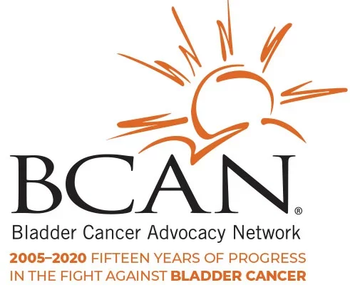
The FDA granted approval to Opdivo as an adjuvant treatment in patients with high-risk urothelial carcinoma.


The FDA granted approval to Opdivo as an adjuvant treatment in patients with high-risk urothelial carcinoma.

Intravesical therapy for patients with non-muscle invasive bladder cancer was found to have an impact on patients’ social, emotional and physical health.

In this episode of the “CURE® Talks Cancer” podcast, a cancer survivor who served in the Vietnam War shares the story of his Agent Orange exposure and bladder cancer.

Smoking cigarettes could lead to a four-fold increased risk of recurrence in patients with a previous diagnosis of non-muscle invasive bladder cancer.

An analysis showed that glycemic index – but not glycemic load or total carbohydrate intake – significantly increased the risk of developing bladder cancer.

Approximately 18 months after granting Padcev an accelerated approval, the Food and Drug Administration granted a regular approval to the treatment for certain previously treated patients with locally advanced or metastatic urothelial carcinoma.

Results demonstrating the efficacy of Bavencio highlight the importance of incorporating recent clinical trial successes into the treatment conversation.

Agent Orange exposure impacted millions of U.S. military personnel during the Vietnam War. The chemical may have led to bladder cancer diagnoses later in life.

Keytruda plus gemcitabine and higher doses of radiotherapy showed promising efficacy and safety results in patients with muscle-invasive bladder cancer.

Patients who tested positive for the biomarker circulating tumor DNA (ctDNA) had improved disease-free and overall survival after receiving Tecentriq.

A combination of treatment with bladder-saving surgical resection, Opdivo and chemotherapy yielded positive results in patients with muscle-invasive bladder cancer.

The study’s lead author noted that the data support giving patients with advanced bladder cancer chemotherapy to get control of the disease and then maintaining that control with maintenance Bavencio.

Some of the most popular YouTube videos about bladder cancer are of poor quality, spread misinformation and have commercial bias.

A retirement counselor with bladder cancer shares the story of his diagnosis and his thoughts on treatment.

A roundup of some of CURE®’s latest news and updates for patients with bladder cancer in honor of Bladder Cancer Awareness Month this May.

FDA committee members recently voted in favor of upholding Tecentriq’s accelerated approval indication for the first-line treatment of certain adults with locally advanced or metastatic urothelial carcinoma who are ineligible for standard chemotherapy.

In this episode of the “CURE® Talks Cancer” podcast, Henry Scowcroft discusses his experiences writing a book about his late wife’s cancer journey and offers advice for other caregivers.

Several factors were associated with patients undergoing radical nephrectomy compared with radical nephroureterectomy including Black race, large tumors, advanced tumor stage and high-grade tumors.

Trodelvy has received accelerated approval from the FDA for the treatment of patients with advanced urothelial cancer.

Adjusting the dose of cisplatin, when added to regular doses of Abraxane and gemcitabine, led to similar survival rates when treating patients with advanced/metastatic urothelial carcinoma, which may help to address issues commonly seen with patients who cannot tolerate cisplatin such as renal dysfunction.

If patients were receiving Tecentriq for prior platinum-based treated metastatic urothelial carcinoma, they should discuss next best steps with their health care providers.

While it is important to educate oneself after receiving a diagnosis of cancer, it’s also critical to know when to step away and find a balance between cancer and life, according to Diane Zipursky-Quale.

To discuss the projected rise in bladder cancer cases in 2021, CURE® spoke with Bladder Cancer Advocacy Network (BCAN) co-founder Diane Zipursky-Quale, who offered some insight on why the numbers continue to rise, and provides some hope in the form of educational programs offered by her organization.

Treatment with Padcev, compared to chemotherapy, continues to show better results in patients with advanced urothelial carcinoma who had previously received certain therapies.

In Episode 2 of the “Bladder Cancer Matters” podcast, host Rick Bangs interviews Dr. Heather Honoré Goltz in Part 2 of a two-part episode.